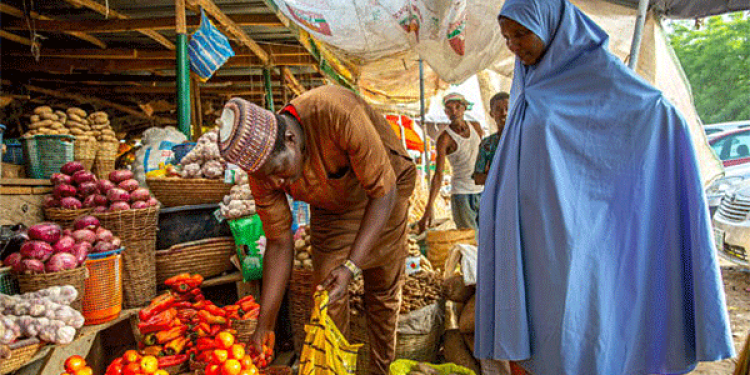Tension is brewing between Nigerian farmers and the federal government over the recent fall in the prices of major food items across the country.
While farmers and agricultural groups attribute the drop to the government’s approval of large-scale food importation, federal authorities insist that the decline is a positive result of improved local production and new policy incentives.
According to several farmers, the influx of imported grains has saturated the market, causing prices to fall below production costs. Many said they have been unable to sell their old stock at profitable rates, leaving them in financial distress.
In response, the Minister of State for Agriculture and Food Security, Aliyu Sabi Abdullahi, rejected the farmers’ claims. He argued that the recent price adjustment reflects the success of government programmes designed to increase local output.
“The federal government is focused on ensuring that food is not only available but also affordable for Nigerians,” Abdullahi stated during a briefing in Abuja to mark World Food Day.
“Since 2023, we have ramped up production through the National Agricultural Growth Scheme and the Agro-Pocket Programme, injecting more than 500,000 metric tons of wheat, maize, cassava, and other crops into the system. That increase in supply naturally lowered prices.”
He clarified that the government had not yet released imported food items into the local market, adding that authorities are monitoring the situation to avoid disruptions to domestic agriculture.
Farmers Raise Alarm Over Losses
Despite the minister’s assurance, many farmers maintain that imported food products including grains and processed items have already reached local markets.
They allege that the imports extend beyond the officially approved items like rice, maize, and sorghum, and now include other products such as starch and ginger.
“Anyone who visits major markets can see the volume of imported goods,” one farmer said. “This is why the prices of local produce have crashed. We can’t even recover our costs.”
Producers also complained about the rising cost of farm inputs, including fertilizer, fuel, and seeds, which they say continues to undermine their profit margins.
Background: Duty-Free Import Window
In September 2024, the federal government introduced a 150-day duty-free import window to allow the importation of essential grains such as rice, maize, sorghum, and wheat.
The policy, which was later extended into January 2025, was meant to ease food prices and cushion the economic hardship faced by millions of households.
However, the initiative has had unintended effects, as prices of locally produced staples including rice, beans, maize, millet, cassava flour, yam, and garri have dropped sharply, in some cases by nearly 50 percent, especially in rural markets around the Federal Capital Territory (FCT).
Balancing Affordability and Production
While the federal government maintains that lower food prices indicate progress in its agricultural reform efforts, farmers argue that the trend could discourage local production and increase reliance on imports.
“We understand the government’s goal of making food affordable,” Abdullahi said. “But we also want to ensure that local producers are not pushed out of business. No one should be left behind in our food security agenda.”
Farmers, however, insist that without tighter controls on imports and more support for local producers, Nigeria’s agricultural sector may struggle to remain sustainable.
Key Takeaways
Farmers’ Claim: Imports are flooding markets, forcing down local prices.
Government’s Stand: Prices dropped due to higher domestic production.
Farmers’ Challenge: Rising input costs and unsold produce.
Policy Context: Duty-free import waiver (Sept 2024 – Jan 2025).




